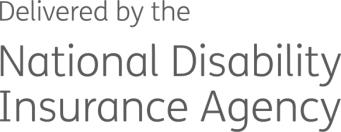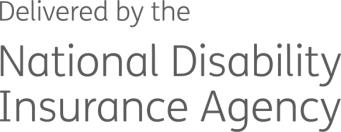
 Our reference:
Our reference: FOI 21/22-0045
GPO Box 700
Canberra ACT 2601
1800 800 110
31 August 2021
ndis.gov.au
Shirley
By email: xxxxxxxxxxxxxxxxxxxxxxxxx@xxxxxxxxxxx.xxx.xx Dear Shirley
Freedom of Information request — Notification of Decision
Thank you for your correspondence of 16 July 2021, in which you requested access under the
Freedom of Information Act 1982 (FOI Act) to documents held by the National Disability
Insurance Agency (NDIA).
The purpose of this letter is to provide you with a decision on your request.
Scope of your request
You have requested access to documents about the National Disability Insurance Scheme
(NDIS). Specifically, you requested access to:
“…a copy of the NDIA’s FOI Policy and Procedure...”
Decision on access to documents
I am authorised to make decisions under the FOI Act. My decision on your request and the
reasons for my decision are set out below.
I have identified 3 documents which fall within the scope of your request.
The documents were identified by conducting searches of NDIA’s systems, using all
reasonable search terms that could return documents relevant to your request.
I have decided to grant access to all 3 documents in part.
I note that public documents are also available that relate to your request. Given these
documents are publicly available online, they have not been considered as part of this
decision. For your convenience, you can find more information about FOI policies and
procedures the NDIA follows at the below addresses:
NDIS website – Freedom of Information policy page
Freedom of Information Act 1982
Office of the Australian Information Commissioner Freedom of Information Guidelines
Please note that these links are current as at the date of decision.
In reaching my decision, I took into account the following materials:
your correspondence outlining the scope of your request;
the nature and content of the documents falling within the scope of your request;
the FOI Act;
the FOI Guidelines;
relevant case law concerning the operation of the FOI Act;
1
consultation with relevant NDIA staff;
Access to edited copies with exempt or irrelevant material deleted (section 22)
I have decided that documents falling within the scope of your request contain material that is
exempt from disclosure under the FOI Act. I have also identified that documents falling within
the scope of your request contain material that is irrelevant to your request. The irrelevant
material relates to identifying information of NDIA staff which is not relevant to the subject
matter of your request.
In accordance with section 22 of the FOI Act, I have considered whether it is possible to delete
the exempt and irrelevant material from the documents and have concluded that it is
reasonably practicable to do so. Accordingly, I have prepared an edited copy of the documents
with the exempt and irrelevant material removed.
Reasons for decision
Certain operations of agencies (section 47E(d))
Section 47E(d) of the FOI Act conditionally exempts a document if its disclosure would, or
could reasonably be expected to, have a substantial adverse effect on the proper and efficient
conduct of the operations of an agency.
Documents within the scope of your request contain information relating to certain operations
of the NDIA, specifically internal guidance given to staff in relation to verifying the identity of
applicants, internal contact points, and the processes as well as systems used to monitor and
manage requests received by the NDIA.
The disclosure of this information would reveal methodologies the NDIA uses to assist in
determining how sufficient proof of identity is established and how requests may be
monitored and managed using particular systems. Furthermore, disclosing individual contact
details may jeopardise the use of internal single points of contact.
I am satisfied that the release of this information would potentially result in the public disclosure
of internal methodologies that, through improper use, would, or could, lead to individuals
seeking to circumvent identity checks to fraudulently misrepresent themselves. Additionally,
system vulnerabilities may be identified in how requests are monitored and managed may
lead to bad faith actors seeking to exploit or circumvent particular processes. I am satisfied
that this would substantially and adversely affect the integrity of the NDIA’s statutory functions
in relation to the FOI Act.
I am also satisfied that there is a reasonable likelihood of aggrieved members of the public
seeking to gain advantage over others by using internal points of contact in place of the
appropriate points of contact and that release of this information could reasonably be expected
to have an adverse effect on the proper and efficient conduct of the operations of the Agency,
namely the Agency’s ability to conduct its operations in a timely and efficient way.
Public interest considerations – section 47E(d)
Under the FOI Act, access to a document covered by a conditional exemption must be
provided unless disclosure would be contrary to the public interest.
After considering the public interest factors outlined in section 11B(3) of the FOI Act, I have
determined that disclosure of the material identified as subject to conditional exemptions would
provide access to information relating to the applicant. However, I have considered that:
disclosure of the information would not contribute to the publication of information of
sufficient public interest to justify the likely harm caused by release;
2

disclosure of the information would not enhance Australia’s representative democracy in
the ways described in section 11B(3) of the FOI Act; and
disclosure of the information would not inform any debate on a matter of public importance
or promote oversight of public expenditure.
While there is limited public interest in the disclosure of information conditionally exempt under
section 47E(d) the harm that would result from disclosure is that it could reasonably be
expected to prejudice the ability of the NDIA to protect the security and integrity of information
released by the NDIA, and undermine the effectiveness of processes in relation to the NDIA’s
statutory functions.
In summary, I am satisfied that the factors against disclosure of the information outweigh the
factors in favour of disclosure and that, on balance, it would be contrary to the public interest
to release this information to you.
Release of documents
The documents for release, as referred to in the Schedule of Documents at
Attachment A,
are enclosed.
Rights of review
Your rights to seek a review of my decision, or lodge a complaint, are set out at
Attachment B.
Should you have any enquiries concerning this matter, please do not hesitate to contact me
by email
at xxx@xxxx.xxx.xx. Yours sincerely
Ausilia Woodhead Assistant Director - FOI
Parliamentary, Ministerial & FOI Branch
Government Division
3
Attachment A
Schedule of Documents for FOI 21/22-0045
Document
Page
Description
Access Decision
Comments
number
number
Standard Operating Procedure –
PARTIAL ACCESS
Irrelevant material removed
1
1-8
Freedom of Information Processing
under section 22 of the FOI
Exemption claimed:
Act.
s47E(d) – certain operations of agencies
Standard Operation Procedure –
PARTIAL ACCESS
Irrelevant material removed
2
9-21
Freedom of Information
under section 22 of the FOI
Registration Officer
Exemption claimed:
Act.
s47E(d) – certain operations of agencies
Standard Operating Procedure –
PARTIAL ACCESS
Irrelevant material removed
3
22-30
Freedom of Information Triage
under section 22 of the FOI
Exemption claimed:
Act.
s47E(d) – certain operations of agencies
4
 Attachment B
Your review rights
Attachment B
Your review rights
Internal Review
The FOI Act gives you the right to apply for an internal review of this decision. The review
will be conducted by a different person to the person who made the original decision.
If you wish to seek an internal review of the decision, you must apply for the review, in
writing, within 30 days of receipt of this letter.
No particular form is required for an application for internal review, but to assist the review
process, you should clearly outline your grounds for review (that is, the reasons why you
disagree with the decision). Applications for internal review can be lodged by email to
xxx@xxxx.xxx.xx or sent by post to:
Freedom of Information Section
Parliamentary, Ministerial & FOI Branch
Government Division
National Disability Insurance Agency
GPO Box 700
Canberra ACT 2601
Review by the Office of the Australian Information Commissioner
The FOI Act also gives you the right to apply to the Office of the Australian Information
Commissioner (OAIC) to seek a review of this decision.
If you wish to have the decision reviewed by the OAIC, you may apply for the review, in
writing, or by using the online merits review form available on the OAIC’s website at
www.oaic.gov.au, within 60 days of receipt of this letter.
Applications for review can be lodged with the OAIC in the following ways:
Online:
www.oaic.gov.au
Post:
GPO Box 5218, Sydney NSW 2001
Email:
xxxxxxxxx@xxxx.xxx.xx
Phone:
1300 363 992 (local call charge)
Complaints to the Office of the Australian Information Commissioner or the
Commonwealth Ombudsman
You may complain to either the Commonwealth Ombudsman or the OAIC about actions
taken by the NDIA in relation to your request. The Ombudsman will consult with the OAIC
before investigating a complaint about the handling of an FOI request.
Your complaint to the OAIC can be directed to the contact details identified above. Your
complaint to the Ombudsman can be directed to:
Phone:
1300 362 072 (local call charge)
Email:
xxxxxxxxx@xxxxxxxxx.xxx.xx
Your complaint should be in writing and should set out the grounds on which it is considered
that the actions taken in relation to the request should be investigated
1



